

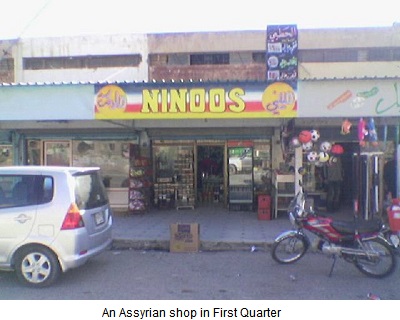 When considering the present civil war in Syria, the focus of most Assyrians in the diaspora has understandably been directed towards the governorate of al-Hasakah, which harbours the largest concentration of ethnic Assyrians in the country. Little attention has been paid, however, to the small yet considerable communities 210 km to the southwest, in al-Raqqah Governorate. Prior to the eruption of the Syrian conflict in 2011 there were as many as 250 Assyrian families in the governorate, concentrated mainly in Madinat al-Thawrah ("Revolution City"), still known locally by its old name of al-Tabqah (or Tabgah). A smaller number of Assyrians also resided in the provincial centre, 45 km to the east, as well as in the border town of Tell-Abyad.
When considering the present civil war in Syria, the focus of most Assyrians in the diaspora has understandably been directed towards the governorate of al-Hasakah, which harbours the largest concentration of ethnic Assyrians in the country. Little attention has been paid, however, to the small yet considerable communities 210 km to the southwest, in al-Raqqah Governorate. Prior to the eruption of the Syrian conflict in 2011 there were as many as 250 Assyrian families in the governorate, concentrated mainly in Madinat al-Thawrah ("Revolution City"), still known locally by its old name of al-Tabqah (or Tabgah). A smaller number of Assyrians also resided in the provincial centre, 45 km to the east, as well as in the border town of Tell-Abyad.
The Assyrians of al-Thawrah
Before 2011, the nahiyah (sub-district) of al-Thawrah was home to 70,000 people, including Arabs, Kurds, Assyrians and Armenians, with Muslims and Christians residing peacefully side-by-side. The city is located about 330 km northeast of Damascus and 130 km southeast of Aleppo. Up until the 1960s it was an insignificant village on the Euphrates River named al-Tabqah. With the construction of the Euphrates dam and its accompanying power station between 1968 and 1977, however, it developed into a service town and was expanded to house up to 12,000 Syrians and 900 Russian technicians who came to work on the project. This hydroelectric dam is the largest of its kind in Syria and provides electricity to many areas, including Aleppo.
In 1973 the fast-growing town was renamed al-Thawrah, in memory of the March 8th coup d'état which, in 1963, brought the Ba'ath Party to power in Syria. New, well laid out and immaculately planned neighbourhoods were built to house many of the incoming workers, including the First, Second and Third Quarters (named after the Party's principles of Wahdah, Hurriyah w-Ishtirakiyah -- unity, liberty and socialism). In contrast, the old part of town to the south (al-Tabqah proper) maintained its traditional style and layout, and is still locally known as al-Qaryah ('the village'). It should be noted that the government did help in offering cheap housing to dam workers and their families. Owing to their low salaries, however, and a lack of employment in other industries in the city, many of these families were unable to develop themselves economically.
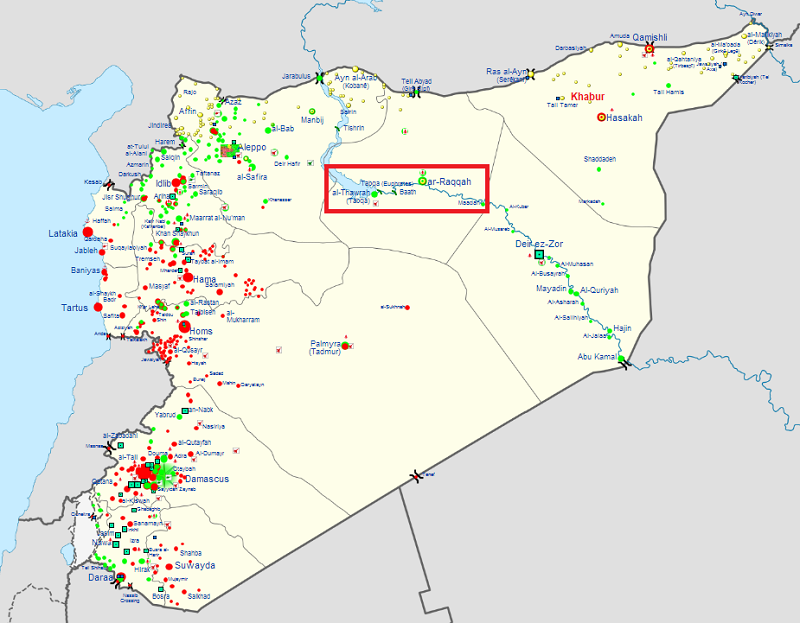
The first Assyrians to settle in al-Thawrah were dam and construction workers, as well as civil, electrical and mechanical engineers. They were eventually joined by their wives and children, and soon the community grew. Most of the Assyrians in the city belonged to the Assyrian Church of the East, and by 1973 they had established a small church, dedicated to St. George, and a community hall in al-Qaryah. They were served by a succession of priests from the Assyrian Church of the East until early 2013, when the community was displaced. Around the year 2000, a plot of land in the Third Quarter was purchased by them in order to build a new church, closer to where the bulk of the community lived, and in the same neighbourhood as the local Antiochian Orthodox Church. This project never materialised, however, perhaps for the best.
On the eve of Syria's civil war more than 200 Assyrian families (1,000 individuals) lived in al-Thawra, concentrated mostly in the First, Second and Third Quarters, on the right bank of the Euphrates, north of the old town, and beside the dam. Out of these, 110 families belonged to the Assyrian Church of the East and originated from the villages along the Khabur River in al-Hasakah Governorate. These were followed in number by the Syriac Orthodox Assyrians, who totalled about 80 families, along with a few Chaldean Catholic, Syriac Catholic and Protestant families. Whilst these communities were smaller, did not have their own churches, and were not served by their own local priests, there was a plan to build a modest Syriac Orthodox church. This, however, did not come into fruition either.
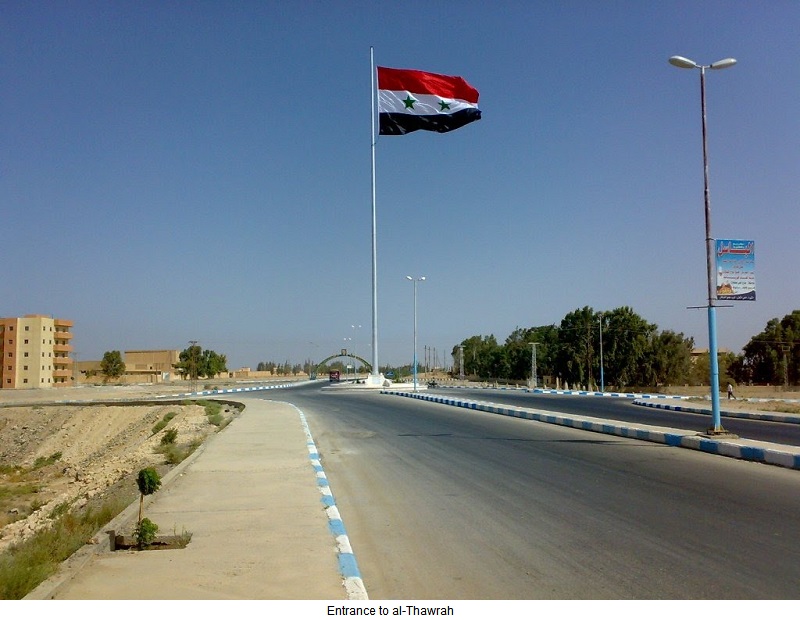
Al-Raqqah Governorate becomes a war zone
After taking over the northern part of al-Raqqah Governorate in September 2012, the "Free Syrian Army" made the provincial capital a primary target. On October 20, Reuters reported that the al-Nusra Front claimed responsibility for attacking and overrunning the Suluq air defence barracks in al-Raqqah, in cooperation with the al-Fajr Islamic Movement and a group of Chechen fighters of the Muhajiroun Brigade, killing 32 soldiers.1 On November 14, Catholic news agency Fides reported a car bomb exploding in front of the Antiochian Orthodox church of the Annunciation in that city, damaging the church and causing two deaths -- both of whom were civilians. This succeeded in spreading terror amongst the local population, and was a grim sign of things to come.2
On November 26, 2012, a main route from al-Raqqah to Aleppo passing through al-Thawrah along the Euphrates was reported to be dotted with both regime and rebel checkpoints.3 By 30 December 2012, it was reported that opposition forces were fighting in the city and two days later it was reported that a majority of al-Raqqah Governorate was in rebel control.
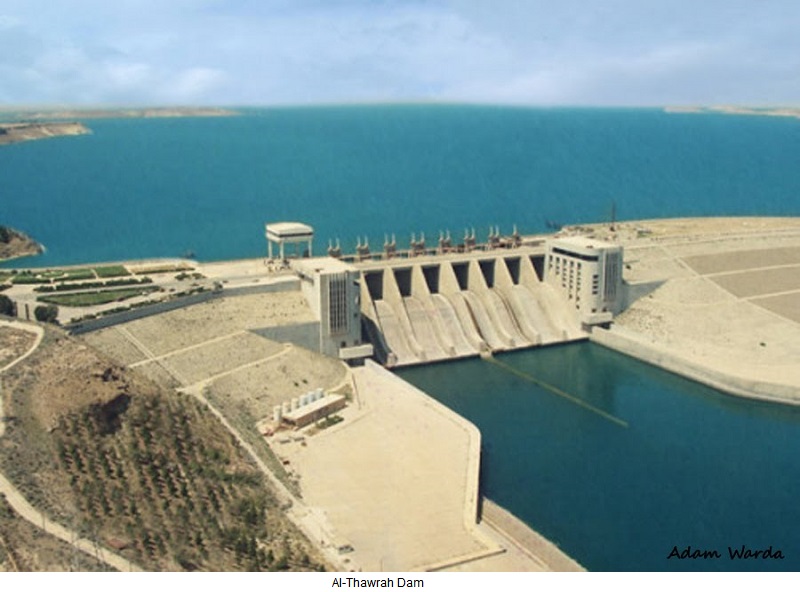
On January 10, 2013, the civil war came to al-Thawrah when fierce artillery shelling from Tabqa military airport was reported in the city.4 A month later on February 11, Syrian rebels, including al-Nusra fighters, took control of the town and its strategic dam, according to the Syrian Observatory for Human Rights (an information office opposed to the Syrian Government) and videos posted by rebels. Fighters also seized control of the three neighbourhoods that housed dam workers -- in which many Assyrians lived.5
On February 22, the Syriac Orthodox Archbishop of Aleppo, Mor Gregorios Youhanna Ibrahim, who was kidnapped and allegedly murdered by Islamist rebels on April 22, reported that hundreds of Christian families had suffered forced displacement from al-Thawrah due to fear and anxiety caused by the fierce fighting there. He had been informed by a local priest that, in just one night, more than 80 families left the city.6
The humanitarian crisis in al-Thawra was wrought with helplessness. A few beleaguered Assyrian families remained stranded there since they could not manage to survive anywhere else due to economic reasons. These were unreachable due to the hazardous situation on the roads, which had been rendered a battlefield. Snipers and kidnapping were also a danger, making it very difficult to move around even within the city itself. Add to that the many difficulties in communicating via telephones and the internet, which are still not operating in many areas under rebel control.
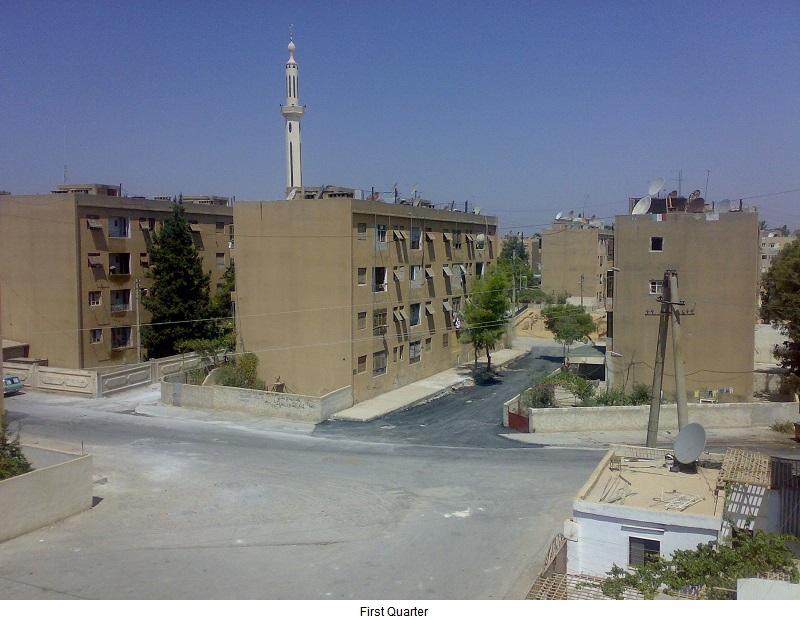
On March 4, the Jihadist organisations Jabhat an-Nusra, Harakat Ahrar as-Sham (known as the Syrian Islamist Front) and the brigade of Huthaya bin al-Yaman captured al-Raqqah, making it the first provincial capital claimed to come under rebel control in the civil war. They also captured the Governor's Palace and arrested the provincial governor. The 'secular' "Free Syrian Army" hardly had any role in this operation.7 The only regime forces that remained in the Governorate were holed up in the al-Thawrah military airbase, which had come under shelling by the rebels, as well as in the Division 17 base outside al-Raqqah.
On March 29, Zohair David (44), an Assyrian from Tell-Goran in al-Hasakah Governorate, was kidnapped and his car stolen. He had just driven 3 Assyrians there from his village, one of whom was a doctor whose presence was requested by the rebels. Zohair, who was married with four children, was found shot dead in a remote area near al-Thawrah nearly a week later.8 On that same day it was reported that rebels besieging the Division 17 base were in control of three quarters of that base with the Syrian Army holding the command centre.9
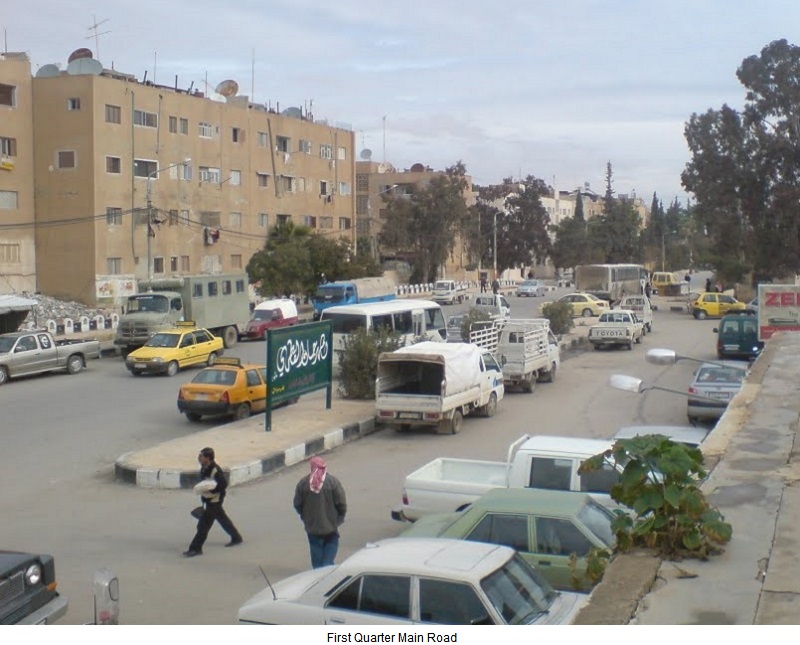
As of May, al-Thawrah is occupied by the Uwais al-Qarni Brigade. Four of the dam's eight turbines are operational and the original staff continues to manage the dam, still receiving pay from the Syrian Government.10 Meanwhile, in al-Raqqah, members of the Islamic State of Iraq and al-Sham publicly executed three Alawite men on May 14.11 Recently, on July 29, fighters belonging of the Islamic State of Iraq and the Levant kidnapped Italian Jesuit priest Paolo Dall'Oglio while he was walking in al-Raqqah, even though he had been prominent in championing the uprising against President Bashar al-Assad. There are fears for his safety.12
A note on al-Nusra
The al-Nusra Front, or Jabhat al-Nusra li-Ahl al-Sham min Mujahidin al-Sham fi Sahat al-Jihad ('Front of Defence for the People of Greater Syria by the Mujahedin of Syria on the Battlefields of Jihad'), is the principle jihadist rebel group operating in Syria and an Al Qaeda associate. The group announced its creation on 23 January 2012 and is generally made up of Sunni Islamist Jihadists. Its goal is to overthrow the Assad government, and then establish a Pan-Islamic state ruled by the Qur'an and Shari'ah law. The group also aims to reinstate the Islamic Caliphate.13 It is described as the most aggressive and successful arm of the rebel force. The group was designated by the United States in December 2012,14 the United Nations in May 2013,15 Australia in June 201316 and the United Kingdom in July 201317 as a terrorist organisation.
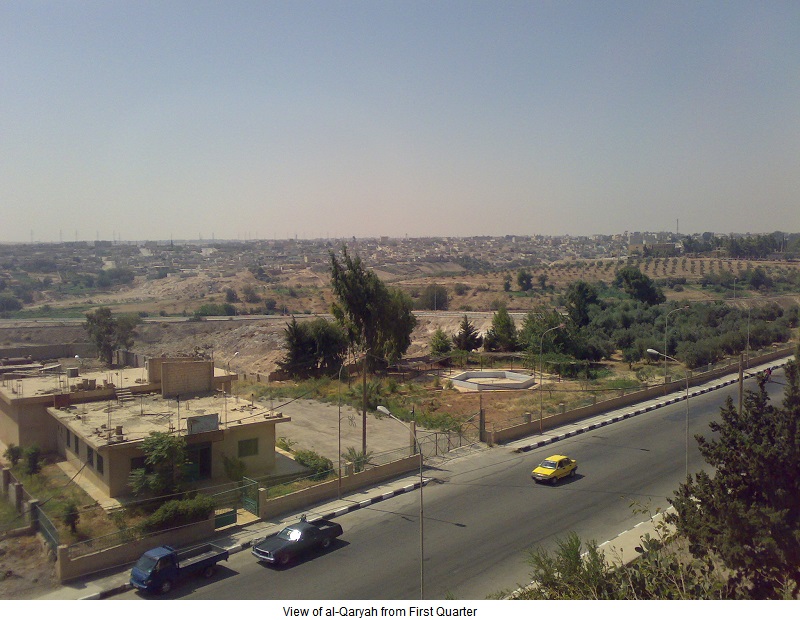
Such militant jihadist groups pose a direct threat to Syria's Christian communities, since they espouse an Islamist ideology, which incorporates elements of Wahhabism (the official religious doctrine of Saudi Arabia) and Salafism. In short, their stated goals and objectives are by definition hostile towards Christians. Syrian Christian refugees in Lebanon describe kidnappings, rapes, harassment, theft and other violent reprisals at the hands of these Islamist groups. According to many of them, "just being Christian is enough to be a target."18 It would thus appear that the violence directed towards Christians in Syria is not purely incidental, nor is it motivated by economic reasons. Many other Christians fear being incorrectly identified as pro-Assad, by association, and thereby targeted for violent persecution by the Islamists and other opposition forces.19
The current situation of the Assyrians
The Assyrians of al-Thawrah and al-Raqqah are now dispersed and internally displaced, with some families having fled to government-held areas of al-Hasakah, Qamishli, Aleppo and Damascus. Others are now refugees in Lebanon and Turkey, awaiting their fate. According to Syriac Orthodox Archbishop in al-Hasakah, Mor Eustathios Matta Roham, these families, "… cannot go back to their home towns, because many of them lost their houses and property."20 Additionally, some 25 families from al-Thawrah belonging to the Assyrian Church of the East are currently stranded in the Tartus Governorate, concentrated mostly in the majority-Christian town of Safita.
Most of these families are under great economic stress after having lost everything they possessed -- their homes, their businesses, the schools they used to send their children to, their jobs and their livelihoods. Now, by no fault of their own, they have found themselves destitute, having fled their homes under the cover of night; and with many of them currently in need of food, clothing, medicine and shelter. Particularly, they are in dire need of monetary aid, in order to be able to support themselves in a country where prices of simple commodities have now gone through the roof. Many of them hope to be accepted as refugees and allowed to settle in Europe, North America or Australia, since they can no longer imagine a secure or stable future for themselves in Syria.
Notes
1 "Militant group says was behind Aleppo air defence base assault" (Reuters), 20 October 2012, http://www.reuters.com/article/2012/10/20/syria-crisis-aleppo-idUSL5E8LK04Q20121020.
2 "Car bomb outside a church in northeastern Syria," (Agenzia Fides), 14 November 2012, http://www.fides.org/en/news/32641-ASIA_SYRIA_Car_bomb_outside_a_church_in_northeastern_Syria#.UfreVo03Avw.
3 Alison Tahmizian Meuse, "Syria rebels seize dam" (AAP), 26 November 2012, http://www.perthnow.com.au/archive/news/syria-battle-reaches-damascus-outskirts/story-e6frg13l-1226523898402.
4 "Syria, Raqqa:Tabaqa: Fierce artillery shelling from Tabaqa military airport was reported in the city," 11 January 2013, http://yallasouriya.wordpress.com/2013/01/10/syria-raqqa-tabaqa-fierce-artillery-shelling-from-tabaqa.
5 Hwaida Saad and Rick Gladstone, "Syrian Insurgents Claim to Control Large Hydropower Dam," New York Times, 11 February 2013, http://www.nytimes.com/2013/02/12/world/middleeast/syrian-insurgents-claim-to-control-large-hydropower-dam.html?ref=middleeast; Bassem Mroue, "Syrian rebels capture country's largest dam" (AP), 11 February 2013, http://www.usnews.com/news/world/articles/2013/02/11/rebels-fight-regime-troops-for-syrias-largest-dam; "Syria crisis: 'Powerful' minibus explosion kills 13" (BBC), 11 February 2013, http://www.bbc.co.uk/news/world-us-canada-21409661; "Rebels take control of military airport in North Syria, NGO says" (AFP), 12 February 2013, https://now.mmedia.me/lb/en/nowsyrialatestnews/rebels-take-control-of-military-airport-in-north-syria-ngo-says; Bassam Mroue, "Syrian rebels advance toward Aleppo airport" (AP), 12 February 2013, http://www.usnews.com/news/world/articles/2013/02/12/syrian-rebels-capture-countrys-largest-dam.
6 "Syria: Families flee under cover of night," February 20, 2013, http://www.wazala.org/2013-02-syria-families-flee-under-cover-of-night; "Syrian Christians Face Situation Going From Bad to Worse" (Zenit.org), February 22, 2013, http://www.ewtn.com/vnews/getstory.asp?number=124141.
7 Pieter van Ostaeyen, "The fall of ar-Raqqa to Jihadism ~ Jabhat an-Nusra & Harakat Ahrar as-Sham," 7 March 2013, http://pietervanostaeyen.wordpress.com/2013/03/07/the-fall-of-ar-raqqa-to-jihadism-jabhat-an-nusra-harakat-ahrar-as-sham
8 "Assyrian Man Kidnapped and Killed in Syria" (AINA), 4 April 2013, /news/20130403175229.htm.
9 A Syrian Army source at the base reported that 80 soldiers had been killed and 250 injured in the fighting, and that many injured troops had died of gangrene, "Syrian regime troops appeal for immediate aid in Al-Raqqa" (Al Arabiya), 4 April 2013, http://english.alarabiya.net/en/News/middle-east/2013/04/04/Syrian-regime-troops-appeal-for-immediate-aid-in-Daraa.html.
10 Nour Malas, "Syrian Rebel Held Dam Churns Out Power, Thanks In Part to Regime," Wall Street Journal, 30 May 2013, http://blogs.wsj.com/middleeast/2013/05/30/syrian-rebel-held-dam-churns-out-power-thanks-in-part-to-regime
11 Syrian 'rebels' publicly execute Alawites in al-Raqqa, 16 May 2013, http://humanrightsinvestigations.org/2013/05/16/syrian-rebels-public-execute-alawites-in-al-raqqa
12 "Italian Priest Kidnapped By Syrian Rebels" (AINA), 30 July 2013, /news/20130730130411.htm.
13 Ruth Sherlock, "Inside Jabhat al Nusra - the most extreme wing of Syria's struggle," The Telegraph, 2 December 2012, http://www.telegraph.co.uk/news/worldnews/middleeast/syria/9716545/Inside-Jabhat-al-Nusra-the-most-extreme-wing-of-Syrias-struggle.html.
14 "US blacklists Syrian rebel group al-Nusra" (Al Jazeera), 11 December 2012, http://www.aljazeera.com/news/middleeast/2012/12/2012121117048117723.html.
15 "UN blacklists Syria's al-Nusra Front" (Al Jazeera), 31 May 2013, http://www.aljazeera.com/news/americas/2013/05/201353021594299298.html.
16 "Australian Government lists anti-Assad Syrian group as terrorist organisation" (ABC), Jun 29, 2013, http://www.abc.net.au/news/2013-06-29/australia-lists-syrian-group-as-terrorist-organisation/4789476.
17 "Britain bans Syria's al-Qaida-linked Nusra Front on terrorism grounds" (AP), 19 July 2013, http://www.foxnews.com/world/2013/07/19/britain-bans-syria-al-qaida-linked-nusra-front-on-terrorism-grounds/#ixzz2akFJ5RoT
18 Nuri Kino, Between the Barbed Wire, Ungdoms Initiativet, 2013, p. 17. Available online at: http://www.betweenthebarbedwire.com.
19 Matthew J. Thomas, "Islamist Ultimatum to Syrian Christians: Convert, Leave, or Die" (AINA), 18 April 2013, /releases/20130418143615.htm.
20 "Syrian Orthodox Archbishop Speaks on the Situation of Christians in Syria" (AINA), 22 May 2013, /news/20130521194520.htm.

or register to post a comment.